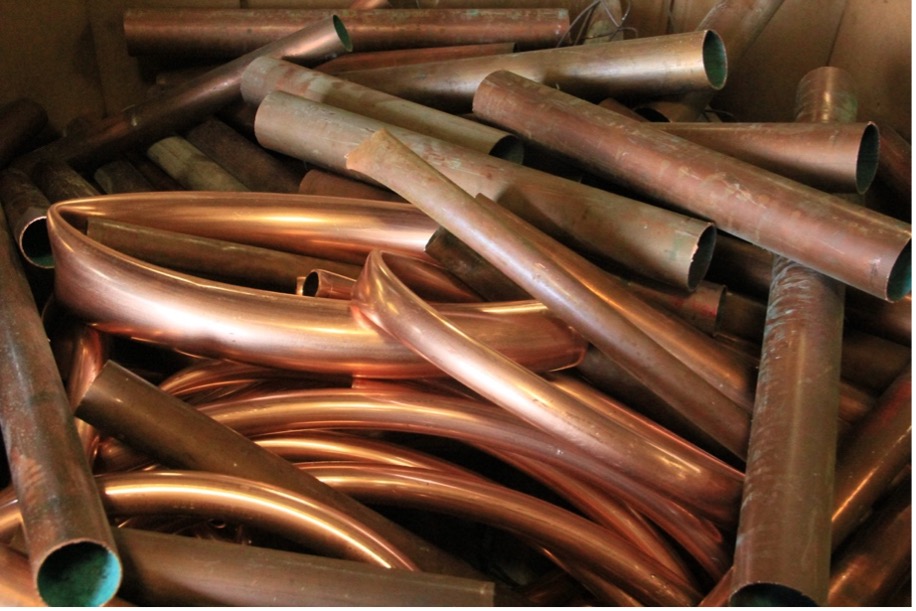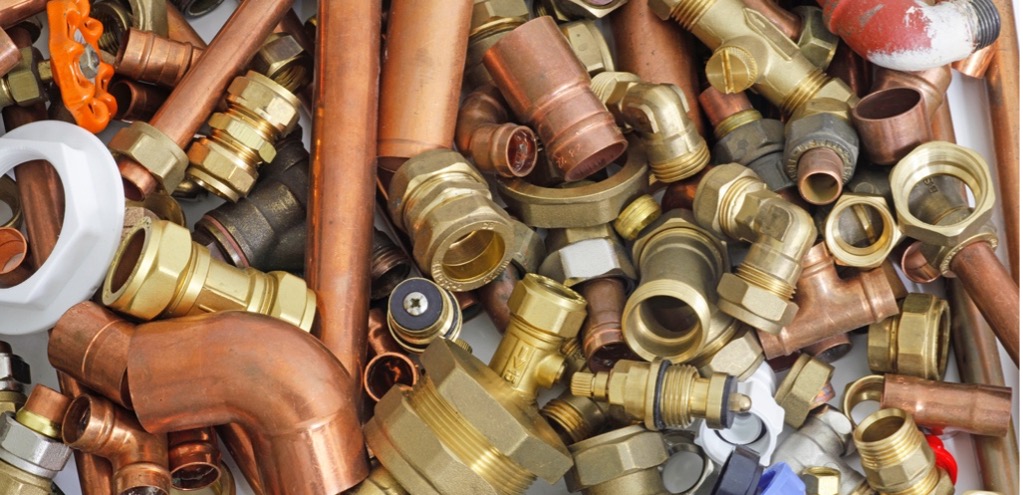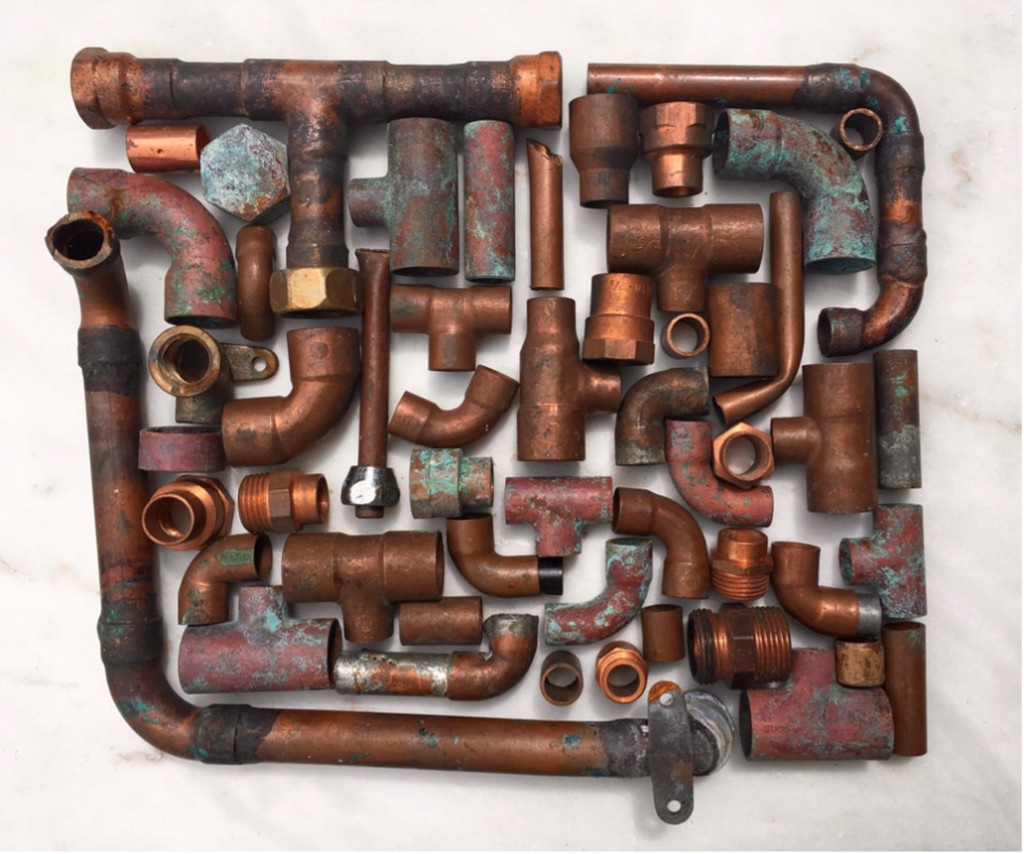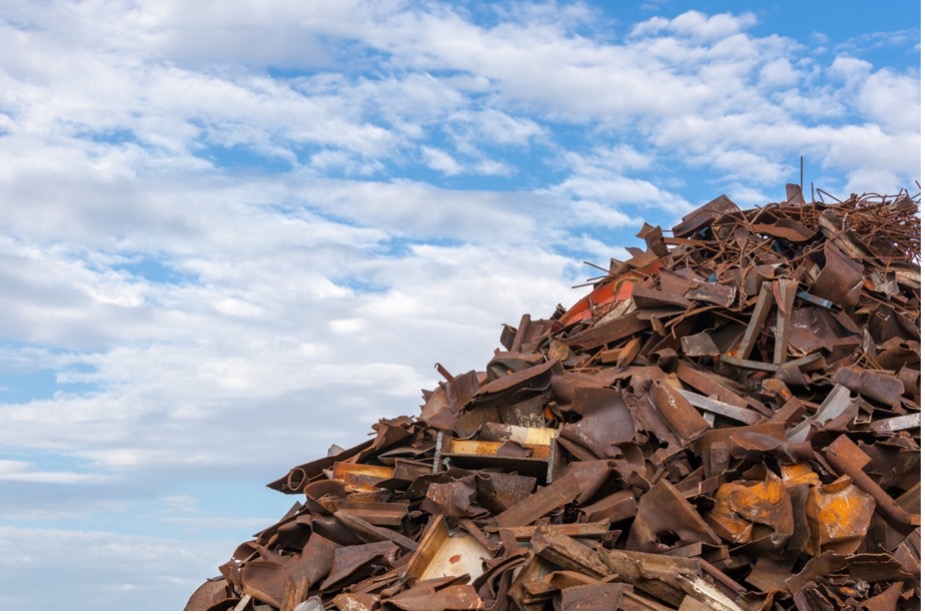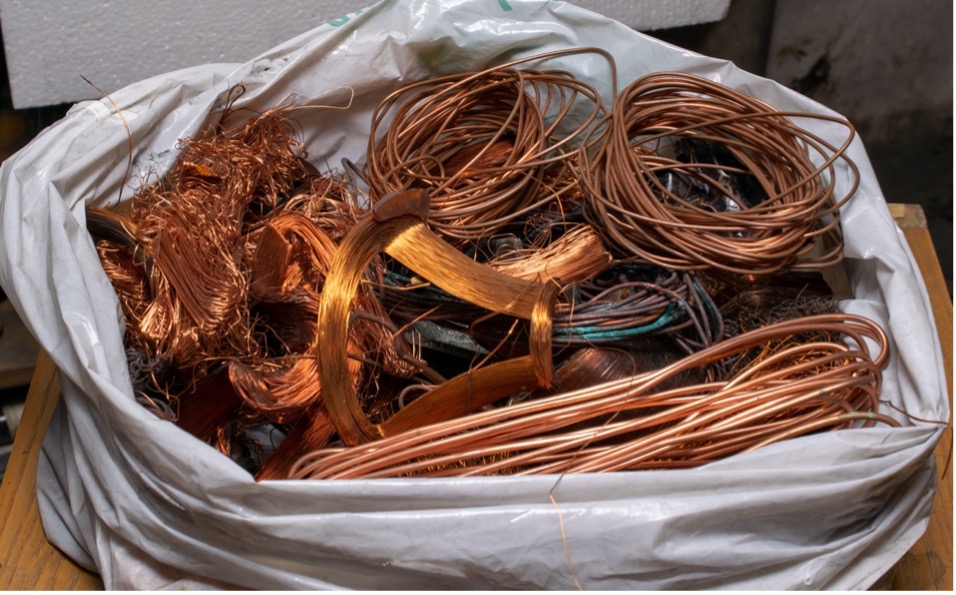The value of plumbing as a trade is unquestionable, as it keeps hydraulic systems efficient; however, there is much more beyond fixing leaks! In fact, many don’t realise the great potential plumbing franchises and large businesses have to increase their profits thanks to valuable materials like copper and brass. These scrapped metals, which are seen as mere leftovers, hold considerable market value, which, once recognised, allows plumbers to turn waste into wealth.
In this blog, we will use our extensive experience in metal recycling to explore this interesting process, focusing on the value of these metals and the best techniques for collecting them without forgetting the legal and environmental implications of keeping the activity lawful and valid.
Brass and Copper: from Leftovers to Financial Opportunities
It is quite well known that scrap brass and copper are among the most valuable metals in the recycling market. Brass, used in plumbing fixtures such as faucets, valves, and pipes, is an alloy of copper and zinc; copper, instead, is essential in pipes, fittings, and wiring due to its excellent conductivity and malleability. Despite the prices for these metals going up and down based on demand, in general, they consistently remain high due to their widespread use and the substantial cost of sourcing them raw.
For large plumbing businesses, there is immense value in this market. Usually, the worth of scrap brass and copper depends on their purity and condition. Clean, unalloyed copper, often referred to as “bare bright copper,” is priced high, while brass is more complex to value due to its different alloys and conditions. The secret is to stay ahead of the game when it comes to current market prices, which, fortunately, are easily tracked online through commodity price websites. By doing so, large industrial businesses can determine the best times to sell their collected scrap metals, turning discarded leftovers into incredible financial opportunities.
How to Identify and Collect Scrap Metals Efficiently
The first step in monetising brass and copper is to identify and collect them effectively. As we said, in large plumbing businesses, professionals often work with these metals when dealing with old pipes, fittings, and fixtures but don’t know how valuable they are. So, knowing how to distinguish between different types of metals is the start. It may seem easy, but it isn’t! For example, we know the distinctive reddish-brown colour; however, when significantly old, it turns greenish due to corrosion. Brass, instead, is naturally yellowish with a somewhat dull shine, but it will turn greenish with time for the same reasons as copper does. So, here are a few valuable pieces of advice:
- A systematic approach makes a difference. Our best advice is to separate scrap metals and set aside a dedicated bin for brass and copper.
- Using proper tools, such as metal shears and pipe cutters, helps disassemble fixtures and reduce pipes to manageable sizes.
- To increase resale value, it is best to clean the metals of any solder, paint, or attachments.
By consistently collecting metal leftovers from big industrial jobs, plumbing businesses will easily accumulate significant quantities of brass and copper over time, turning regular maintenance and installation into an additional source of income.
Cultivating Good Relationships with Metal Recycling Specialists
Building strong relationships with local scrap yards and recycling businesses like Morecambe Metals has advantages for large plumbing franchises and businesses. Specialists like us offer commercial activities efficient scrap metal collection and scrap metal buying services, which represent the very first phase of metal recycling. So, here are the fundamental steps of the process:
- Research and visit scrap yards to establish a consistent pattern of sales.
- Understand each scrap yard’s specific requirements.
- Regular communication guarantees the development of a professional relationship and can lead to valuable advice on market trends and the best times to sell.
- Large plumbing businesses that invest time in these fruitful relationships will turn their scrap metal into profit more effectively.
Legal and Environmental Considerations
So far, we have discussed the financial side of recycling scrap metal, but we should always bear in mind that it is not just about profit. It must also adhere to legal and environmental standards.
To make the entire process lawful, plumbing businesses must comply with local regulations regarding the transportation and sale of scrap metal, provide specific documentation and licences, and keep detailed records of their transactions, including where and when the metal was obtained, to comply with laws fully. Franchises usually cover this aspect very efficiently.
Sustainability is equally important, especially to us. Proper recycling of scrap brass and copper reduces the need for mining new raw materials, which has significant environmental impacts. On top of that, businesses specialising in commercial plumbing should also ensure that their scrap is recycled responsibly by choosing reputable scrap metal specialists that follow environmentally friendly practices.
At Morecambe Metals, we possess all the legal authorisations and Duty of Care licences that allow us to sell and collect scrap metal from businesses legally and sustainably.
The Importance of Sorting and Processing Scrap Metals
As we briefly mentioned above, sorting and processing metals are just as important and effective in increasing profit. Before selling scrap brass and copper, for instance, large plumbing businesses need to separate clean copper from copper with attachments or mixed metals to ensure that the highest quality, and therefore highest-paying, metal is sold. To do this efficiently, a reliable set of scales to weigh the metals accurately is fundamental.
Additionally, processing the metals, such as stripping insulated copper wire or removing non-metal attachments from brass fixtures, boosts their value. This procedure requires additional time and effort, but it will ultimately pay off. Finally, it is worth mentioning that plumbing companies should always keep their scrap metals secure, storing them away to prevent theft, especially copper, which is often targeted.
If you run a large industrial plumbing business or franchise and are seeking a reliable partner to turn your metal leftovers into valuable profit, you can rely on our services to collect and buy scrap metal. With Morecambe Metals, you can rest assured the entire process fully complies with laws and regulations and is also sustainable. Do you want to learn more about us and our services in Lancaster and beyond? Contact us today, and one of our team will get back to you promptly!

